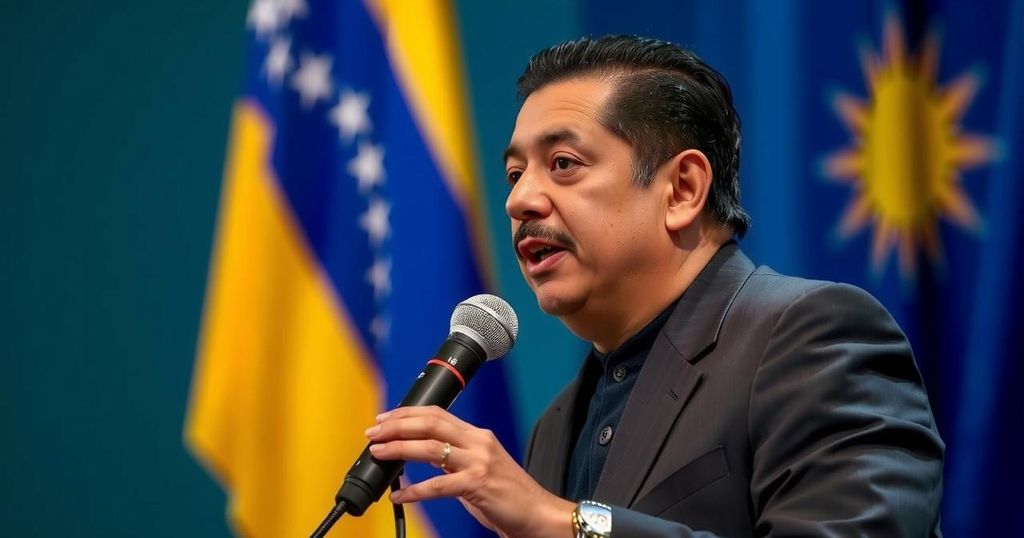Maduro Asserts Venezuela’s Resolve Following Brazil’s BRICS Membership Veto
Venezuelan President Nicolas Maduro vowed that his country would not be silenced following Brazil’s veto of its BRICS membership application. The decision, met with outrage by Maduro, was attributed to a breach of trust over undisclosed electoral results from July 2024, where the opposition claims he was defeated. The incident highlights ongoing tensions regarding Maduro’s legitimacy and Venezuela’s international relations.
On October 26, 2024, Venezuelan President Nicolas Maduro declared that his nation would not accept silence after Brazil vetoed its application to join the BRICS group, which comprises major emerging economies. This announcement comes amidst Venezuela’s severe economic crisis, which the government attributes to sanctions imposed by the United States. President Maduro has been a long-time advocate for Venezuela’s membership in BRICS, expressing exasperation over the recent denial. The Venezuelan government reacted strongly to Brazil’s decision at a summit held in Kazan, Russia, labeling it a “hostile” and “immoral” act. Upon his return home, President Maduro confidently stated, “no one will block or silence Venezuela, not today, not tomorrow, not ever.” Notably, he did not directly address Brazil in his remarks. The relationship between Maduro and Brazilian President Luiz Inacio Lula da Silva has grown tense due to the controversy surrounding Maduro’s disputed election victory. The Venezuelan opposition claims that they secured victory in the July 28 ballot, which has cast doubt on Maduro’s legitimacy. Former Brazilian Foreign Minister Celso Amorim, an advisor to President Lula, indicated that the veto was due to a “breach of confidence” by Maduro, who had previously committed to sharing the comprehensive results of the contested election. According to the Venezuelan opposition, these results would demonstrate that Mr. Maduro was defeated by Edmundo Gonzalez Urrutia, who is currently in exile in Spain following allegations of politically motivated charges against him. Despite the controversy, Maduro claimed that he met with representatives from nearly 30 countries in Kazan, all of whom, he asserted, recognized his “great electoral victory.” The BRICS group expanded in 2024, integrating Ethiopia, Iran, Egypt, and the United Arab Emirates into its fold alongside Brazil, Russia, India, South Africa, and China.
The BRICS grouping is composed of major emerging economies that allow for cooperative engagement to influence global economics and politics. In recent years, Venezuela has sought to join BRICS as part of its strategic shift amid crippling economic sanctions from the United States. The geopolitical dynamics shifted further when Brazil, under President Lula, opposed Venezuela’s bid—an unexpected move given their historical alliances. Maduro’s controversial re-election in July 2024 has fueled further tension internally and externally, with allegations from the opposition suggesting institutional misconduct. The fallout from the election and the blocked BRICS bid underscores the fragile political landscape within Venezuela and its international relations.
In conclusion, President Nicolas Maduro’s defiance following Brazil’s veto of Venezuela’s BRICS application reflects both the complexity of regional relations and the ongoing crisis in Venezuelan governance. The political turmoil surrounding the disputed presidential election and subsequent foreign policy decisions highlight the significant challenges facing the Maduro government and its aspirations on the global stage.
Original Source: www.thehindu.com




Post Comment